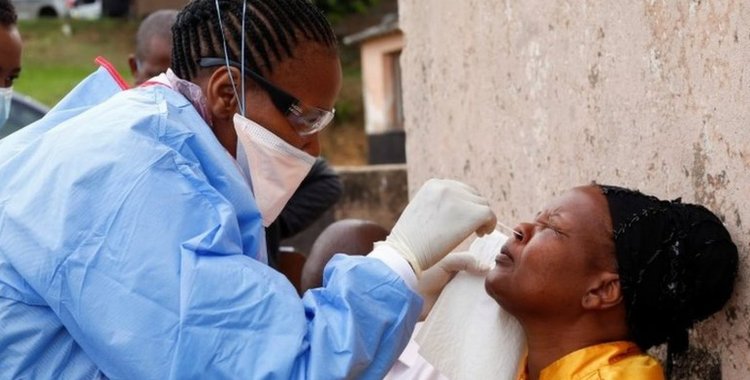So far, "just over 5,000 tests" have been conducted in Angola, said Luís Bernardino, in an intervention during an online seminar promoted by the Rui Cunha Foundation and Plataforma newspaper, both from Macau, on the theme "Let's get suspicious? Public Health Private Options".
"There are local cases, but only 45 were detected," said the doctor, to highlight the "great discrepancy" between African countries, using the example of the neighbouring Democratic Republic of Congo, where more than a thousand cases are counted.
The national health system is "less organised" and with the epidemic "health personnel have been demobilised" and "work day in, day out", he said during the seminar, which was attended by doctors Mónica Pon (Macau) and Mário Freitas (Portugal).
"The workforce has already been reduced, but it should not stay at home (...) it should try to fit in with other services and needs", warned Luís Bernardino, adding that the population is afraid to go to hospitals because of covid-19.
On the disconfinement in Angola, at a time when several countries affected by the pandemic are beginning to put an end to social confinement, the paediatrician stressed that "it is not yet palpable what the epidemic is".
The Portuguese doctor Mário Freitas argued that Portugal "was a kind of miracle", both in terms of the number of cases and the lethality rate. "The worst was feared", especially due to the situations in Spain and Italy.
"The confinement is a kind of atomic bomb of public health", used when there are no treatments or vaccines, as happens with this disease, because it works "in a relatively fast way, taking into account the natural behaviour of the virus, which has an incubation period of 14 days", the Portuguese physician highlighted.
As for the process of deconfinement, it has to be "sustained epidemiologically", he warned.
"The big problem is that people in the first days may not see a reflection of less civic behavior," but between "15 and 20 days" the emergency services will be overcrowded, he added.
"The second wave or next waves will be what we citizens do," warned Mário Freitas, for whom covid-19 is "the last pandemic before the next, a reality that will continue.
For the Macau physician, "to be suspicious does not mean to relax".
"Opening borders means that small outbreaks of infection can occur in the community, as is happening" in Wuhan, the Chinese city where covid-19 was identified last December, or in Germany, said Mónica Pon.
Therefore, the clinic advocated the need to maintain social distance, the use of protective masks and frequent hand washing, as well as "tracking contacts, testing and keeping alert" to the disease.
On a global level, according to an assessment by the AFP news agency, the covid-19 pandemic has already caused more than 292,000 deaths and infected more than 4.2 million people in 195 countries and territories.
Faced with a decrease in new patients in intensive care and contagion, several countries have begun to develop plans to reduce containment and in some cases to alleviate various measures.







